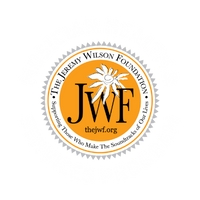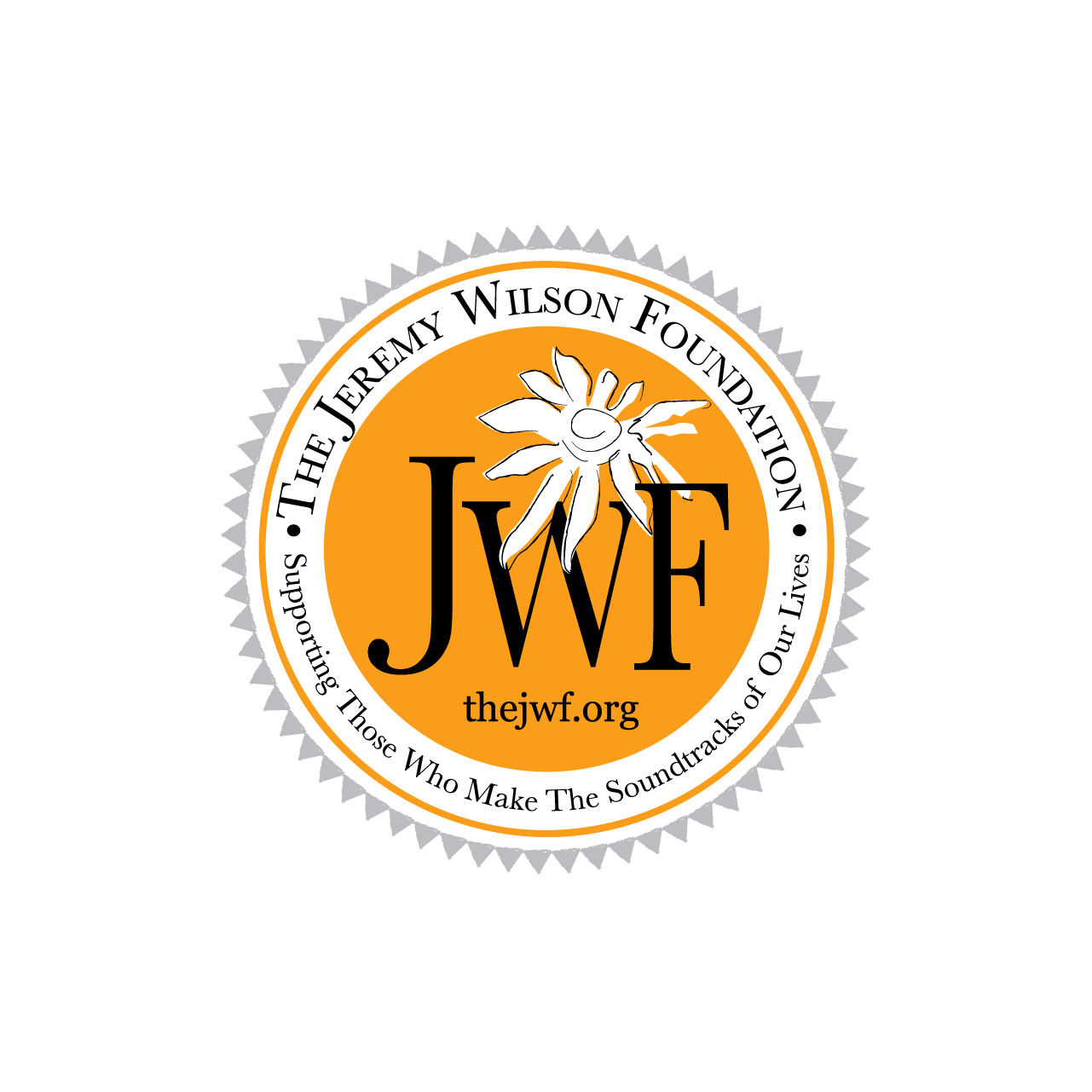Scott McCaughey - Return of the Hoople
by Claire LevineFrom his home in the Pacific Northwest, Scott McCaughey has contributed to some of the most important musical trends of the last 35 years. He has performed with some of the best-known names in alternative rock. And he has a huge network of fans and collaborators in Oregon and around the globe.But none of that protected Scott and his wife, Mary Winzig, from the possibility of financial devastation when he got sick in November 2017. Insurance couldn’t come close to covering hospitalization for a nearly fatal stroke. Then followed months of rehabilitation and lost income.One of the first things he was able to say on regaining consciousness in ICU after the stroke was, “No concerts, fundraisers, no GoFundMe sites.” But Mary told him it was already too late: The community had rallied instantly, and funds were accumulating, well before Scott left the hospital. Support culminated in two fundraising concerts within two months of Scott’s stroke -- raising well over $100,000 to help with their expenses. One of the best parts was that Scott was able to play a few songs on bass onstage at the Star Theater benefit. “Seeing so many friends performing amazing music to help me out was just overwhelming to me.”And his friends are a Who’s Who of rock: Mike Mills, Bill Berry and Peter Buck of REM; Alejandro Escovedo; Corin Tucker and Janet Weiss of Sleater-Kinney; James Mercer of the Shins; Chris Funk of the Decemberists, and many more from Portland and elsewhere. Community members asked The Jeremy Wilson Foundation for help to hold an online fundraiser. Musicians from across the country offered prized items -- like guitars donated and signed by Pearl Jam and Wilco’s Jeff Tweedy, along with his cohorts Jay Farrar and Mike Heidorn of Uncle Tupelo. One of Scott’s rock ’n’ roll heroes, Ian Hunter of Mott The Hoople, contributed a harmonica!The outpouring of contributions was organic -- once people heard what happened, they donated what they could.But what takes more deliberate action is handling the money: keeping track of the contributions, prioritizing bills and purchases, navigating out-of-pocket costs.
Support culminated in two fundraising concerts within two months of Scott’s stroke -- raising well over $100,000 to help with their expenses. One of the best parts was that Scott was able to play a few songs on bass onstage at the Star Theater benefit. “Seeing so many friends performing amazing music to help me out was just overwhelming to me.”And his friends are a Who’s Who of rock: Mike Mills, Bill Berry and Peter Buck of REM; Alejandro Escovedo; Corin Tucker and Janet Weiss of Sleater-Kinney; James Mercer of the Shins; Chris Funk of the Decemberists, and many more from Portland and elsewhere. Community members asked The Jeremy Wilson Foundation for help to hold an online fundraiser. Musicians from across the country offered prized items -- like guitars donated and signed by Pearl Jam and Wilco’s Jeff Tweedy, along with his cohorts Jay Farrar and Mike Heidorn of Uncle Tupelo. One of Scott’s rock ’n’ roll heroes, Ian Hunter of Mott The Hoople, contributed a harmonica!The outpouring of contributions was organic -- once people heard what happened, they donated what they could.But what takes more deliberate action is handling the money: keeping track of the contributions, prioritizing bills and purchases, navigating out-of-pocket costs.  And that’s where the foundation plays its most important role: taking care of the daily tasks that can seem overwhelming during a time of illness and recovery. JWF let Scott concentrate on healing, and let Mary concentrate on Scott.Here’s how the foundation works. They set up a trust fund for the musician. They arrange monthly payments for housing, utilities and groceries. They keep in touch with the family about out-of-pocket medical costs, unexpected expenses and other needs.As Scott worked to regain his skills (the guitar muscle-memory came back relatively quickly, but the stroke wiped clean his memory for words), he wasn’t focusing on day-to-day tasks. He said he was basically kept unaware of all the things that Mary, Peter Buck and others did to inform the community, raise money and keep life on track. Even now, when he is able to perform and tour again, he is happy to know that the foundation takes care of the things he can’t focus on. “I just throw the bills into a bag hanging on the doorknob. Once a month they find their way to the foundation,” which takes care of them.Scott said, “The problem of musicians paying for health care has been obvious for such a long time. I’ve had so many friends who were ruined financially by a health care crisis.“So, when Jeremy started this up, I was all for it and was glad to help. But I never thought it would come back to help me in this amazing way. It’s great to know the foundation is there, not just for me, but all my friends and other musicians who need it.”For Jeremy, too, the foundation is just one big “will the circle be unbroken” experience.Jeremy has abundant personal gratitude for Scott, who was Jeremy’s musical inspiration long before they met. He credits Scott with discovering Jeremy’s band Dharma Bums and producing their first album.Because of the community’s enthusiastic response to a call for help, Jeremy said the foundation was able to do its best work -- that is, respond to requests as soon as the bills start hitting. With so much grassroots fundraising, “I was able to have the bills paid within a few hours.”Jeremy echoes the collective relief of the music community when he says, “We’re so blessed that Scott’s ok today, that he’s made a comeback like nobody I’ve ever seen. “And the music is the magical doorway to his recovery. Practicing guitar-playing hand movements and recovering lyrics was his therapy -- and apparently the best therapy there is.”Jeremy said Scott is recovering in the same way he has lived the rest of his life: “He’s stunning us with his brilliance and his love.”
And that’s where the foundation plays its most important role: taking care of the daily tasks that can seem overwhelming during a time of illness and recovery. JWF let Scott concentrate on healing, and let Mary concentrate on Scott.Here’s how the foundation works. They set up a trust fund for the musician. They arrange monthly payments for housing, utilities and groceries. They keep in touch with the family about out-of-pocket medical costs, unexpected expenses and other needs.As Scott worked to regain his skills (the guitar muscle-memory came back relatively quickly, but the stroke wiped clean his memory for words), he wasn’t focusing on day-to-day tasks. He said he was basically kept unaware of all the things that Mary, Peter Buck and others did to inform the community, raise money and keep life on track. Even now, when he is able to perform and tour again, he is happy to know that the foundation takes care of the things he can’t focus on. “I just throw the bills into a bag hanging on the doorknob. Once a month they find their way to the foundation,” which takes care of them.Scott said, “The problem of musicians paying for health care has been obvious for such a long time. I’ve had so many friends who were ruined financially by a health care crisis.“So, when Jeremy started this up, I was all for it and was glad to help. But I never thought it would come back to help me in this amazing way. It’s great to know the foundation is there, not just for me, but all my friends and other musicians who need it.”For Jeremy, too, the foundation is just one big “will the circle be unbroken” experience.Jeremy has abundant personal gratitude for Scott, who was Jeremy’s musical inspiration long before they met. He credits Scott with discovering Jeremy’s band Dharma Bums and producing their first album.Because of the community’s enthusiastic response to a call for help, Jeremy said the foundation was able to do its best work -- that is, respond to requests as soon as the bills start hitting. With so much grassroots fundraising, “I was able to have the bills paid within a few hours.”Jeremy echoes the collective relief of the music community when he says, “We’re so blessed that Scott’s ok today, that he’s made a comeback like nobody I’ve ever seen. “And the music is the magical doorway to his recovery. Practicing guitar-playing hand movements and recovering lyrics was his therapy -- and apparently the best therapy there is.”Jeremy said Scott is recovering in the same way he has lived the rest of his life: “He’s stunning us with his brilliance and his love.”
JWF Musicians Emergency Healthcare Fund
We never imagined the JWF would grow into the organization it is today. A recurring monthly donation of $10, $20 or whatever amount you can afford has the greatest impact on our foundation. Your generosity will help us take the next step towards our goal of establishing a 3-million-dollar endowment fund within the next few years. We hope you will make a one time or recurring donation today.Your Support Makes Music!

